HOME >> CHINA
Outdoor opera
Source:Global Times Published: 2015-9-15 18:13:01
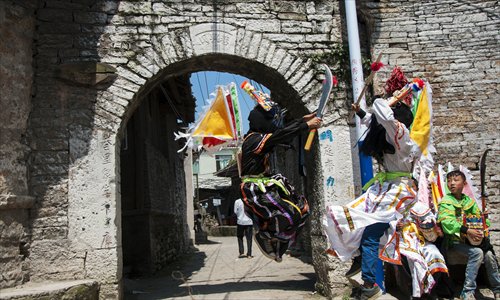
Two children perform local opera near a stone gate in Anshun, Southwest China's Guizhou Province. Photo: IC
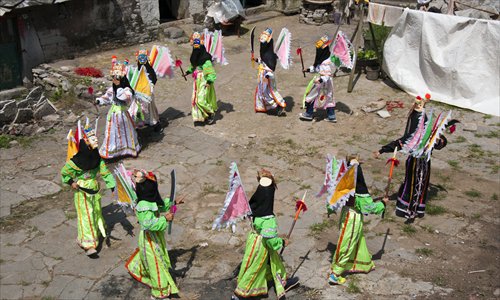
Children dress in traditional costumes and circle an empty lot while practicing singing opera. Photo: IC
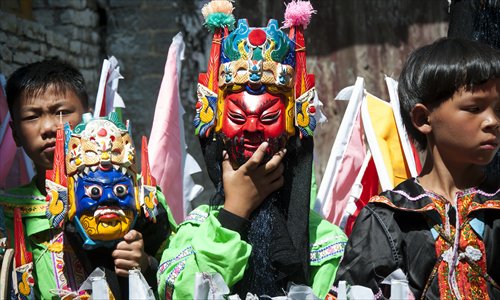
Performers wear colorful masks while singing opera. Photo: IC
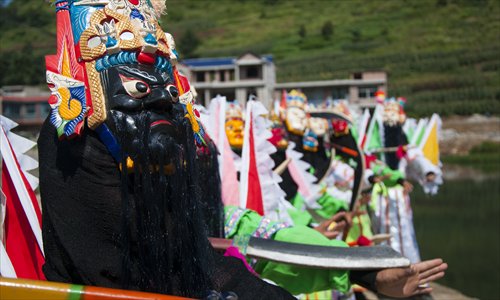
A member from Gu Jiashun's opera group rehearses while wearing a costume, a mask and holding props. Photo: IC
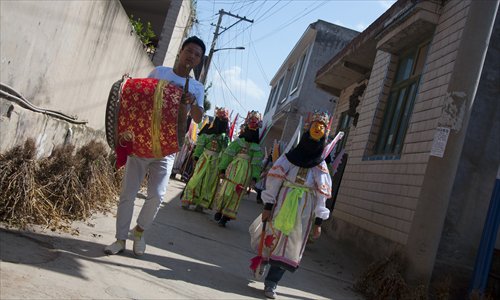
Gu leads his students into the village for a show. Photo: IC
A group of elementary school children dressed in green costumes and masks formed a circle on an empty parking lot. One began singing a high-pitched song, while others made gentle movements with their hands.
A teacher stood next to the children and watched. He stopped them from time to time to offer them instructions or praise.
Their teacher is Gu Jiashun, a practitioner of dixi, a type of traditional opera from Anshun, Southwest China's Guizhou Province.
This type of opera is usually performed out in the open in rural areas, instead of on stages or in theaters. It is now considered part of China's national heritage.
The people there have a unique tunbao (military outpost) culture that includes holidays, folklore and way of dressing. Most of the people living in Anshun are descendents of soldiers who were stationed in Guizhou in the Ming Dynasty (1368-1644) and lived in castle-like stone buildings.
Performances of dixi use a specific arrangement. The instruments used are usually a gong and a drum, and one person sings the main part while others sing the chorus.
Gu's grandfather started teaching him how to perform dixi when Gu was 9 years old. Back then, he sang a small chorus part.
After graduating from middle school, Gu went into the cities to find a job. In 2006, he moved back home to open a restaurant and sometimes performed in the village's opera team. He gradually moved up the ladder, and finally started singing the main part.
When Gu's grandfather died in 2013, he wanted to devote himself wholly to the opera as a way to commemorate his grandfather.
He asked two friends to join him in opening a dixi class for the youngsters. He spent 20,000 yuan ($3,140) on costumes alone and started recruiting children.
At first he ran into difficulties. Some people thought he just wanted to make money. But Gu said he only wanted to do it because young people nowadays aren't interested in local opera, as they'd rather watch something more modern.
"In the 1990s we had more than 200 dixi teams in Anshun, right now we only have around 100 left. If we don't start protecting our heritage now, it'll keep on diminishing," Gu said.
At the moment, Gu's class has more than 50 students. They are mostly around 10 years old and after a year of learning, they can start performing.
Posted in: In-Depth